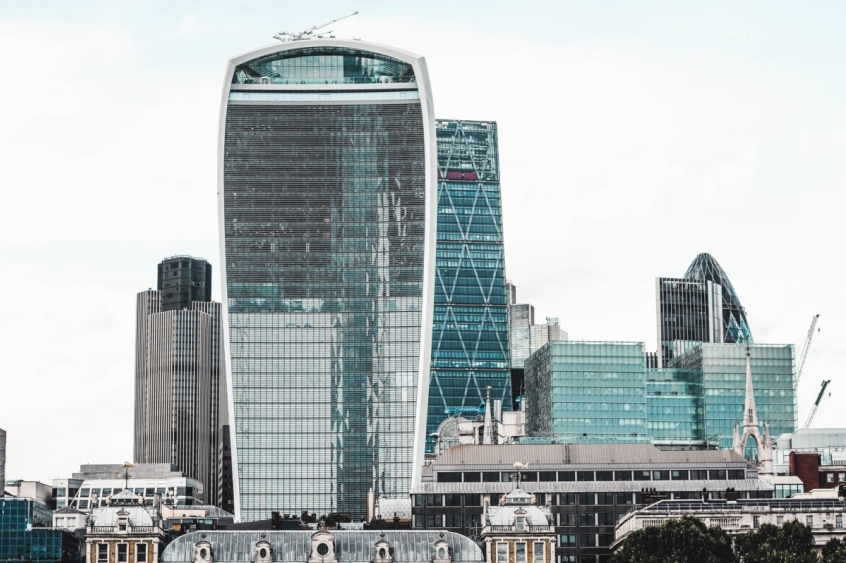
The crisis of Western society, set out so clearly and terrifyingly by Douglas Murray in his recent books, is at root a metaphysical crisis stemming from the abandonment of God and, with it, all grounding in objective moral values.
In the absence of God, a new materialistic morality has grown up based on affirming people's subjective preferences and treating them all as of equal value. To counter this corrosive creed of self-defeating relativism, we urgently need to recover a sense of the objective moral order and why rational people ought to embrace it.
It begins with freedom. Freedom of the will, after all, is why we have moral reasoning in the first place. If we weren't free to reason and choose, there would be no moral debate to be had about what we should do, and no need for a moral law to guide us and distinguish right from wrong.
What is this moral law? It starts from the basic principle that human beings are the free and rational creatures who bear the image of God. This means that humankind, uniquely, has the ability to comprehend the universe, divine its underlying principles, and choose for ourselves the path we will tread. For this reason, the human being is sacred, from conception to natural death.
Also sacred is the personal freedom that is necessary for any properly moral action. This freedom requires liberty of thought, speech and personal property to be given practical effect.
New human beings are produced through the union of male and female. The reproductive unit of male and female is therefore to be respected and protected, and the bond between them and their children, who bear their image, held as sacred.
Over time, groups of humans emerge who, broadly speaking, share a culture, ancestry, likeness and land, common features which underpin a sense of identity, freedom and home. These are nations, and their integrity and self-government are to be respected.
This is the basic framework of classical morality based on the forms of nature – the human being rooted in the family and the nation.
Modern morality has its origins in a scepticism about these forms, which are deconstructed and recast as artefacts of human minds. Sex (being male or female) is reconceived as a social construct, 'gender', and said to be fluid. The sanctity of the family and marriage is diluted and dissolved. The nation is pronounced an illusion and its integrity surrendered. People who are deemed a burden to others and lacking in basic human capacities (the unborn, the disabled, the old) are treated as expendable.
Subjective preference satisfaction becomes the prime moral yardstick, combined with an axiom of equality that treats all such preferences as equal. Equality of outcome between people and their preferences becomes the chief goal.
The new moral order is tolerant of the pursuit of all pleasures and preferences that respect consent, but intolerant of anyone who dissents from its relativist dogmas as they threaten its dominance and progress.
Suspicion is also thrown on anyone believed to have benefited from the old order – men, white people, straight people, and so on – who are cast as oppressors in contrast to those who share in the victim status of those who lack one or more of the 'privileged' features.
The new order is variously described as postmodern, relativist, socialist, neo-Marxist, multicultural, politically correct, progressive and left-liberal. It views the world through the lens of power relations, oppression and inequality. It gives rise to identity politics and the various grievance industries that now permeate our culture.
Both the new order and the old order believe in freedom, but the way they bound it is different. The old order bounds freedom through the objective forms of nature – the human being as sacred and free, as male and female, and as rooted in the family and nation. These forms facilitate human freedom, providing a context in which to exercise it, but they also bound it, setting down the things which all people ought to respect if human life and liberty are to flourish.
The new order, by contrast, bounds freedom through a framework of equality between subjective preferences. In this way it becomes fixated with ensuring equal outcomes between men and women, ethnic groups, 'sexual orientations' and 'gender identities', disabled and able-bodied, and so on. It institutes diversity quotas and equality laws to force these outcomes, which are then weaponised against personal liberties.
In this vision of oppression and oppressors, freedom merges with equality – people are only free when they are equal, and thus liberated from their subjugation. Such a freedom has no room for the classical freedoms of opinion, speech or conscience, which threaten it, but instead establishes a dictatorship of relativism in which anyone who tries to hold onto the old objective values is treated as a persona non grata and given no standing to speak or act. They are presumed guilty of prejudice, bigotry and hate and thus are afforded no tolerance or respect of their own.
This is not true freedom, and neither is it conducive to human well-being, for it fails to recognise the structures that underpin human flourishing. The godless, materialistic order that has emerged from the wreckage of Christian civilisation stands incoherent and discredited. A return to God and his created order is urgently required.
Dr Will Jones is a Leamington-based writer, a mathematics graduate with a PhD in political philosophy and a diploma in biblical and theological studies. He blogs at www.faith-and-politics.com and is author of Evangelical Social Theology: Past and Present (Grove, 2017). He can be found on Twitter @faithnpolitic
More from Will Jones
Parents need to exercise their rights to challenge RSE lessons
Are progressives 'cultural Marxists'?
Stephen Hawking was wrong: 3 reasons why God must exist













